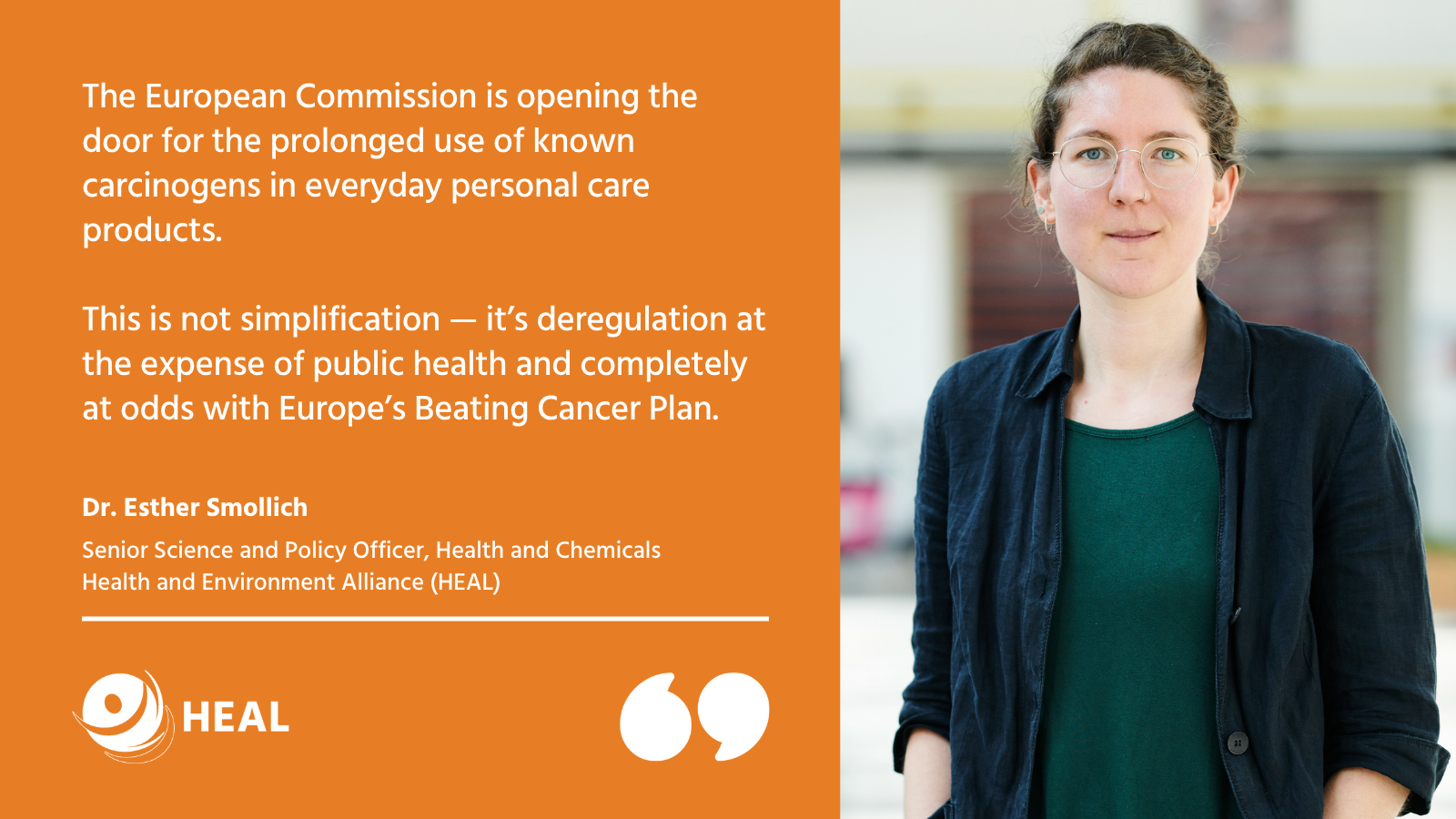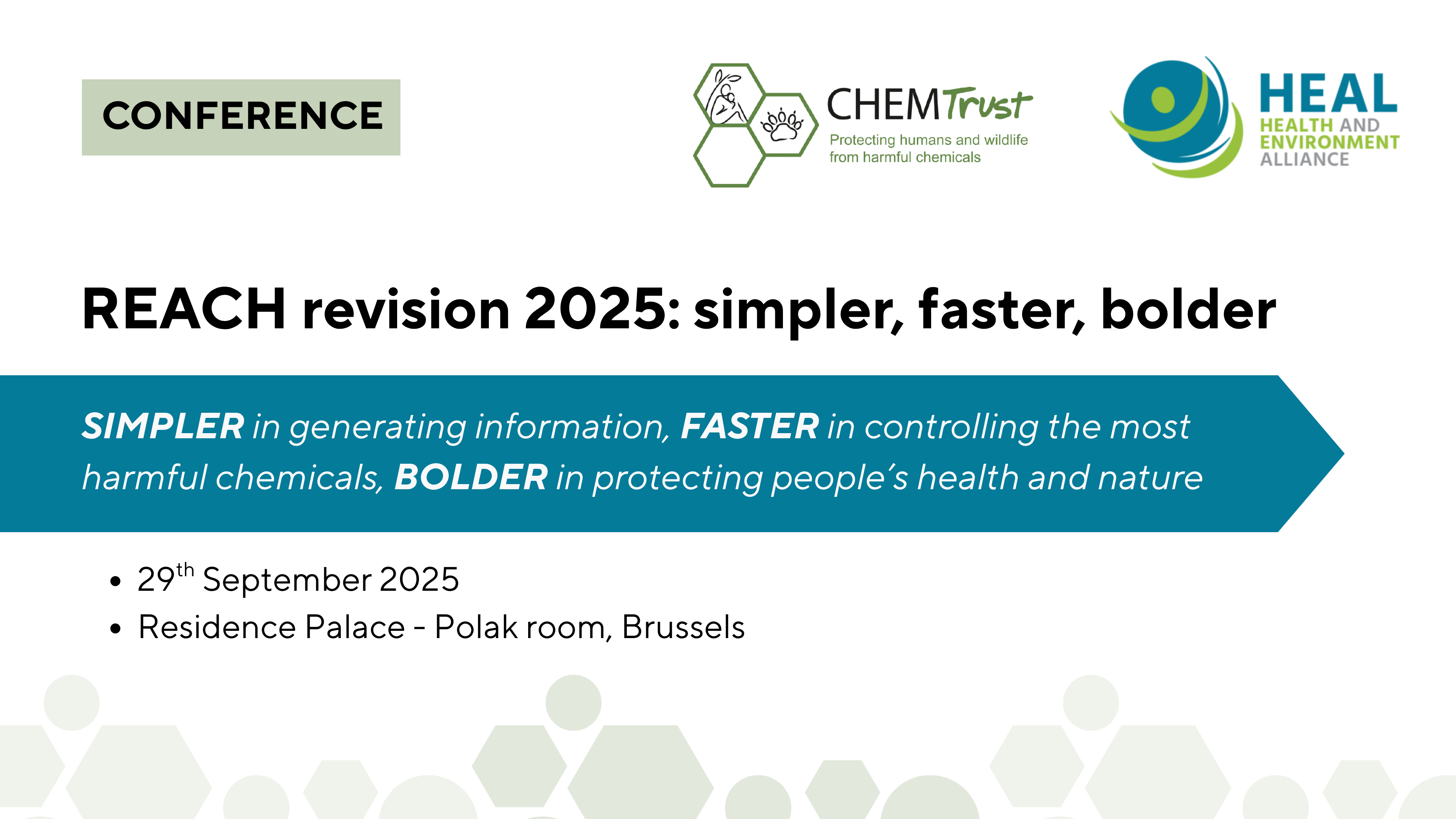Today’s publication of the European Commission’s chemicals omnibus confirms serious concerns: if pushed through the proposal will significantly weaken protections in the Cosmetic Products Regulation, allowing the prolonged use of carcinogens and other harmful chemicals in personal care products.

Brussels, 25 May 2017 – The 2017 edition of the European Week Against Cancer(1) opens in a context where the European Commission just announced its intention to resume the discussion on the reauthorisation of glyphosate for a period of ten years. Glyphosate is the world’s most selling herbicide and a suspected carcinogen. The Association of European Cancer Leagues (ECL) and the Health and Environment Alliance (HEAL) say that banning glyphosate and other endocrine disrupting and unsafe chemicals would prevent many cases of cancer and save lives.
In June 2015, the World Health Organization’s International Agency for Research on Cancer (IARC), the gold standard in identifying carcinogens, classified glyphosate as “probably carcinogenic to humans”. Glyphosate is also potentially an endocrine disrupting chemical (also known as EDCs). EDCs interfere with the workings of our hormone systems and are associated with cancers and many other serious conditions. (2)
The EU assessment of glyphosate concluding that glyphosate is not carcinogenic largely relies on unpublished scientific evidence provided by or scientific reviews sponsored by industry. (3)
Wendy Yared, Director of ECL, stresses, “The IARC evaluation is crucial as it indicates the strength of evidence that glyphosate can cause cancer. The studies looked at by IARC are clear about the statistically significant association between non-Hodgkins lymphoma and exposure to glyphosate.” (4)
Endocrine disrupting chemicals are often associated with reproductive cancers (breast, prostate and testicular). A report by Nordic countries suggests that many cases of testicular cancer could be avoided. It estimated that up to 40% of the health costs associated with three serious male reproductive problems may be due to exposure to hormone disrupting chemicals, and could cost up to 1,200 million euros per year in the European Union. (5)
Génon K. Jensen, Executive Director of HEAL commented: “Tests in several countries have revealed the omnipresence of glyphosate in our environment and organisms. That means, in all likelihood, all Europeans are contaminated – and at an elevated risk of cancer. If IARC finds that glyphosate is likely carcinogenic, European decision-makers shouldn’t think twice, make prevention a priority and reduce environmental exposure to glyphosate through an EU-wide ban. After all, stronger chemical regulation is the “best buy” in cancer prevention because it can stop cancer cases before they start!”
Many cancer societies and medical groups in Portugal, France, Belgium, UK and Malta are calling for greater health protection by reducing or eliminating glyphosate use. Belgium announced at the end of April a sales ban of glyphosate for private use, making Belgium the most recent country to set nationwide restrictions of the toxic pesticide. (6) La Ligue contre le cancer in France, with a membership of 700,000, has launched a petition against renewal of the licence for glyphosate by the European Union authorities. It recently welcomed the French government’s stance against the renewal of glyphosate’s authorisation. (7) And the fastest ever growing European Citizens’ Initiative ‘Stop Glyphosate’, calling on the European Commission to propose to member states a ban on glyphosate, to reform the pesticide approval procedure, and to set EU-wide mandatory reduction targets for pesticide use, has collected close to 800,000 signatures since February 2017. (8)



